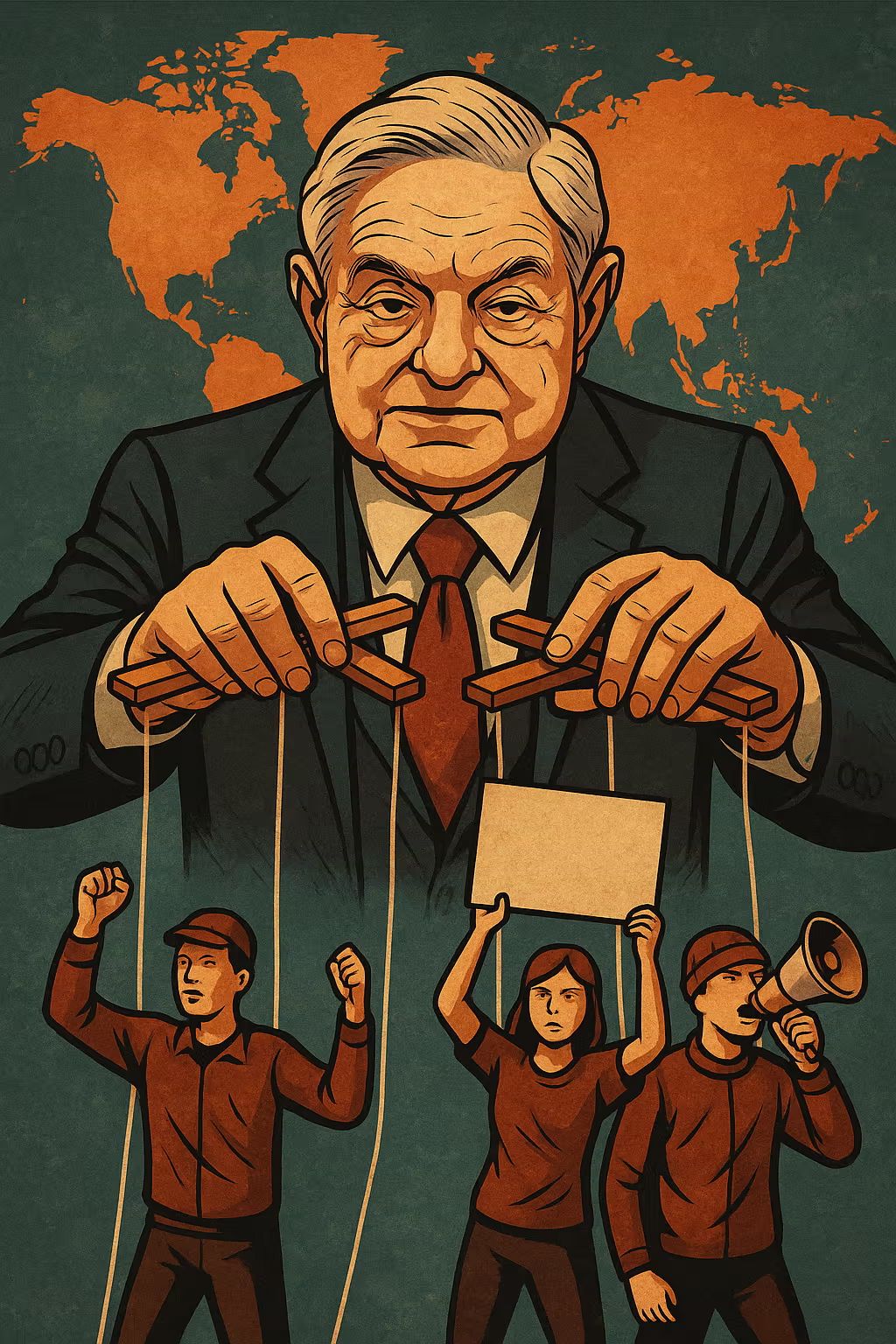By Simon T
July 12 , 2025
In the global struggle for influence, tanks and missiles are no longer the only weapons. NGOs, donor funding, and ideological messaging have become the new arsenal in a quiet but relentless war for hearts, minds, and regimes. At the center of this battlefield stands George Soros—a billionaire financier whose Open Society Foundations (OSF) operate under the noble banner of democracy and human rights. But behind that veil lies a pattern of manipulation, infiltration, and destabilization—one that demands scrutiny, especially in regions as vulnerable as South and Southeast Asia.
Philanthropy or Proxy Power?
George Soros has publicly advocated for “open societies” and spent over $32 billion advancing civil liberties, rule of law, and free expression. But scratch beneath the surface, and another story emerges—one in which his foundation’s vast funding network empowers ideological foot soldiers, infiltrates policy spaces, and undermines nationalist governments that resist Western alignment.
Whether it's supporting protests in Ukraine, lawfare against nationalist leaders in Poland and Hungary, or funding radical progressivism in Latin America, OSF's influence has frequently gone beyond civil advocacy into covert regime engineering.
Sri Lanka: A Case Study in Soft Subversion?
Sri Lanka’s political crises—from the collapse of the Rajapaksa regime to the constitutional deadlock of 2022–2024—have coincided with a sharp rise in Open Society-linked activism, legal mobilizations, and media narratives that favored certain elite interests over others.
A recent exposé, titled “Soros' Shadow: Open Society’s Sri Lanka Coup?”, alleges that high-ranking OSF representatives were present during sensitive political transitions, operating in tandem with foreign-funded protest groups, NGOs, and Western diplomatic pressure. While not conclusive, the timing and alignment of these actors raise alarm.
The alleged use of USAID and EU development funds funneled through Soros-linked grantees further muddies the waters. Is this humanitarian support—or geopolitical interference cloaked in civil society?
The Southeast Asian Theater
In countries like Myanmar, Thailand, Malaysia, and Indonesia, OSF’s funding has backed media watchdogs, legal aid groups, and anti-corruption campaigns—some undeniably vital. But in several cases, these actors have functioned as ideological fifth columns, promoting social fragmentation under the guise of reform.
In Myanmar, OSF-supported organizations fabricated or exaggerated allegations of military abuse, enabling aggressive foreign lobbying that led to sweeping sanctions, institutional isolation, and ultimately, further entrenched the military and prolonged the civil war.
In Thailand, Open Society–connected legal groups and youth organizations were central to protests calling for monarchy reform—a red line for many Thais, who saw this as a foreign effort to fracture national identity.
In Indonesia, several OSF grantees have promoted LGBTQ+ rights, gender radicalism, and Islamic reform, often in ways that clashed with the cultural mainstream—prompting backlash and fueling right-wing populism.
In many of these cases, OSF grantees maintain no electoral accountability and answer only to foreign donors, not to the people they claim to serve.
Dirty Games in Action
Color Revolutions Toolkit:
OSF has been accused of following a playbook that includes:
Funding youth protests and activist networks
Supporting legal frameworks that criminalize opposing political actors
Financing sympathetic media to shape public discourse
Coordinating with Western embassies and think tanks to shift diplomatic recognition
Media Warfare:
OSF funds outlets like OpenDemocracy, Balkan Insight, and many local-language platforms. While some promote transparency, others are accused of pushing ideological bias, discrediting traditional institutions, and amplifying social unrest.
Weaponizing Identity Politics:
Soros's network often inserts divisive identity issues—race, gender, religion—into fragile political contexts, sometimes prioritizing imported social agendas over local reconciliation or national unity.
A Sovereignty Crisis in the Making
Soros and the Open Society brand present themselves as champions of democracy. But what happens when local democratic choices don’t align with their values? The answer is often external funding, narrative control, and institutional capture—all under the flag of "open society."
When unelected networks become more powerful than national institutions, sovereignty erodes, and nations are left vulnerable not just to military coups, but to ideological takeovers—slow, silent, and surgical.
Final Thoughts
Soros’s defenders call him a philanthropist. His critics call him a global puppet master. Perhaps the truth lies somewhere in between. But as more nations awaken to the unaccountable power of foreign-funded NGOs, it becomes clear that civil society itself must be democratized.
Transparency for the powerful. Protection for the sovereign. That’s the new balance the developing world must seek.
-end-


